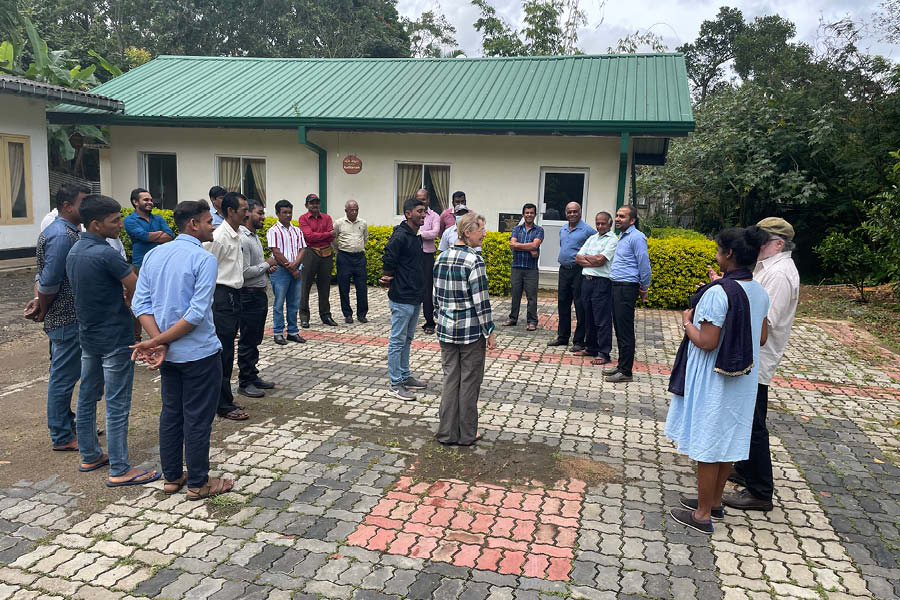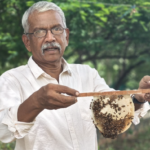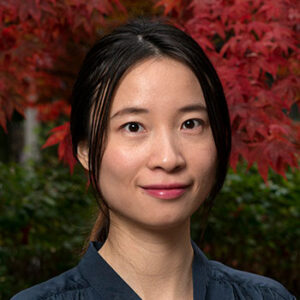The Swedish International Agricultural Network Initiative, under its fourth programme phase (2023 – 2026), invites its members to the regional network meeting to connect, network, and share ideas and experiences. The aim is to strengthen the network and provide opportunities for new connections and collaborations at the regional scale, thus facilitating members’ joining forces towards sustainable, rights-based, and inclusive food systems.
The first regional network meeting of this new phase was held in Nairobi in November 2023. This year, SIANI aims to convene its partners and members engaged in Asia for a comprehensive day-long workshop. The meeting will centre around the theme ”Food, Markets, and Urbanization – Bridging Urban and Rural Food Systems.” Participants will be able to acquire new insights, engage in discussions, and contribute to shaping SIANI’s upcoming initiatives in this area.
Objectives
The objectives of the meeting are
- to strengthen the SIANI network in Asia by bringing together new and old members and partners,
- to create opportunities for new connections and collaborations,
- knowledge sharing and exchange of experiences and ideas,
- to present the SIANI expert group working in South and Southeast Asia, and
- to provide space for SIANI members to give their input on the future work of SIANI
Preliminary agenda
8:30 – Registration opens
9:00 – Arrival with coffee
9:20 – Welcome and introduction, Madeleine Fogde, SIANI director
9:25 – Ensuring healthy ecosystems for livelihoods and food security
- Honey value chains – beekeeping for improved livelihoods and nutrition, Raveendran Kannan, SEEDS Trust
- Promoting agroforestry in the Mekong region – experiences from a SIANI expert group, Robert Finlayson, CIFOR/ICRAF and Kim Soben, Faculty of Forest Science, Royal University of Agriculture, Cambodia
- Use of data for sustainable agricultural supply chains, Yani Wang, Stockholm Environment Institute
10:00 – Local initiatives for sustainable food systems.
Panel discussion moderated by Raja Asvanon, Stockholm Environment Institute Asia
- Chadanan Sukaim, Bangkok Rooftop Farm
- Varangkanang Nimhutta, Growing Cities, Thailand
- Roongnapa Trikaew, Director, Bangkok Metro Administration
10:50 – Coffee break
11:10 – Regional outlook on challenges and agents of change
- Diversifying markets through agroecology, Ravi Khetarpal, Asia-Pacific Association of Agricultural Research Institutions (APAARI)
- Wild foods decline, culture and language – reflections for programs and practice on the ground, Madhu Ramnath, Non-Timber Forest Products Exchange Programme India
- Providing space for food systems in urban planning, Dr. Ing. Rattikarn Khambud, Department of Public Works and Town & Country Planning, Ministry of Interior Thailand
- Reflections on the presentations, Sridhar Dharmapuri, FAO Regional Office for Asia and the Pacific
12:15 – Lunch
13:30 – Roundtable discussions – exploring collaborations for a sustainable food system
15:15 – Concluding remarks
15:30 – Mingle and networking
The agenda is continuously being updated
Speakers
Kannan Raveendran, from SEEDS Trust , Ashoka Fellow (2003-04 ) and works as a beekeeper specializing in Apis cerana, while also cultivating indigenous trees to support local ecosystems. A passionate lepidopterist, Kanan grows plants specifically to support butterfly larvae, contributing to habitat conservation. Additionally, Kanan produces shade-grown robusta coffee, promoting a balance between agriculture and environmental health.
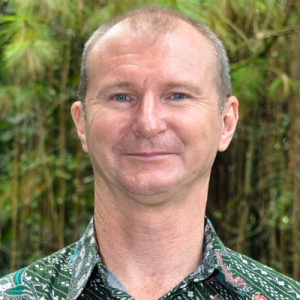 Robert Finlayson is a Senior Associate Fellow with CIFOR-ICRAF who joined in 2010, based in Bogor, Indonesia. He is the focal point for the Mekong Expert Group on Agroforestry for Food and Nutrition Security, Sustainable Agriculture and Land Restoration and was ICRAF Liaison with Myanmar.
Robert Finlayson is a Senior Associate Fellow with CIFOR-ICRAF who joined in 2010, based in Bogor, Indonesia. He is the focal point for the Mekong Expert Group on Agroforestry for Food and Nutrition Security, Sustainable Agriculture and Land Restoration and was ICRAF Liaison with Myanmar.
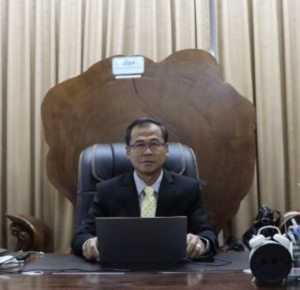 Kim Soben currently is a Dean of the Faculty of Forestry at the Royal University of Agriculture, Cambodia. He has more than 20 years of experience in climate change and agriculture research and education.
Kim Soben currently is a Dean of the Faculty of Forestry at the Royal University of Agriculture, Cambodia. He has more than 20 years of experience in climate change and agriculture research and education.
Yani Wang is Programme Manager at SEI Headquarters in the Global Agendas, Climate and Systems Division and works with Trase, a partnership initiative that maps the international trade of soft commodities and its associated environmental impact.
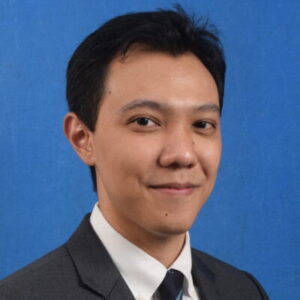 Raja Asvanon works at SEI Asia as a Research Associate in the urban cluster.
Raja Asvanon works at SEI Asia as a Research Associate in the urban cluster.
He has researched urban sustainability through the lens of urban climate adaptation and spatial justice. Before joining SEI, he worked as a consultant at ERM (Environmental Resources Management) and environmentalist at the Ministry of Natural Resources and Environment of Thailand, where he focused on renewable energy development (on- and off-grid), ESG (Environment, Social and Governance) and national planning for climate empowerment in line with UNFCCC’s Article 6.
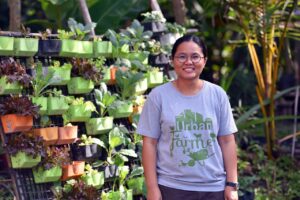 Varangkanang Nimhutta from Growing Cities, Thailand, holds both a Bachelor’s and Master’s degree in Community Development and in Biodiversity Resource Management. From 2011 to 2023, Varangkanang served as the Project Leader for the Urban Gardening Program at the Sustainable Agriculture Foundation (Thailand). Currently, she is leading the ”Growing Cities, Thailand” initiative, a community-driven project aimed at enhancing food security in urban areas. Varangkanang has been instrumental in the development of over 400 community gardens and has contributed to the advancement of urban farming knowledge, techniques, and policies. Her work has also supported the development of alternative local markets, research in urban agriculture, and the promotion of public policies aimed at improving food security in cities.
Varangkanang Nimhutta from Growing Cities, Thailand, holds both a Bachelor’s and Master’s degree in Community Development and in Biodiversity Resource Management. From 2011 to 2023, Varangkanang served as the Project Leader for the Urban Gardening Program at the Sustainable Agriculture Foundation (Thailand). Currently, she is leading the ”Growing Cities, Thailand” initiative, a community-driven project aimed at enhancing food security in urban areas. Varangkanang has been instrumental in the development of over 400 community gardens and has contributed to the advancement of urban farming knowledge, techniques, and policies. Her work has also supported the development of alternative local markets, research in urban agriculture, and the promotion of public policies aimed at improving food security in cities.

Director Roongnapa Trikaew has been a leading the work in promoting urban agricultural work in Bangkok since 1999, having over two decades of experience in the agricultural sector. She has served as a committee member on the working group for agriculture in both Bangkok and external agencies, contributing to key policy development and initiatives. Currently, as the Director of the Agricultural Promotion Division, she is responsible for overseeing and implementing agricultural policies across all 50 districts of Bangkok, ensuring that agriculture remains a vital and sustainable part of the city’s growth and development.
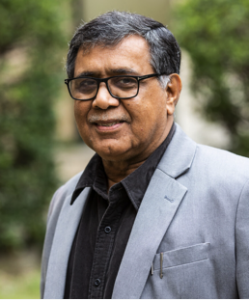 Dr. Ravi Khetarpal is the Executive Secretary of Asia Pacific Association of Agricultural Research Institutions (APAARI) since 2017 and Chair of the Global Forum on Agricultural Research and Innovation (GFAR).
Dr. Ravi Khetarpal is the Executive Secretary of Asia Pacific Association of Agricultural Research Institutions (APAARI) since 2017 and Chair of the Global Forum on Agricultural Research and Innovation (GFAR).
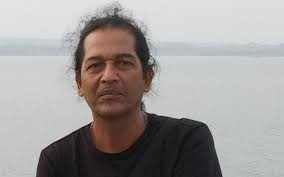 Madhu Ramnath coordinates the NTFP Exchange Programme India. He works broadly on themes concerned with forests and indigenous cultures with a special interest on wild foods and languages.
Madhu Ramnath coordinates the NTFP Exchange Programme India. He works broadly on themes concerned with forests and indigenous cultures with a special interest on wild foods and languages.
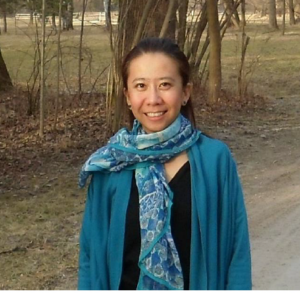 Dr. Ing. Rattikarn Khambu is a Foreign Relations Officer at Thailand’s Department of Public Works and Town & Country Planning, Ministry of Interior. She leads international cooperation projects, including partnerships with Deutsche Gesellschaft für Internationale Zusammenarbeit (GIZ) and the United Nations Sustainable Development Goals (SDGs). She has also lectured in Smart Land Management and Geospatial Science at the Technical University of Munich (TUM) and the Asian Institute of Technology (AIT) in Thailand.
Dr. Ing. Rattikarn Khambu is a Foreign Relations Officer at Thailand’s Department of Public Works and Town & Country Planning, Ministry of Interior. She leads international cooperation projects, including partnerships with Deutsche Gesellschaft für Internationale Zusammenarbeit (GIZ) and the United Nations Sustainable Development Goals (SDGs). She has also lectured in Smart Land Management and Geospatial Science at the Technical University of Munich (TUM) and the Asian Institute of Technology (AIT) in Thailand.
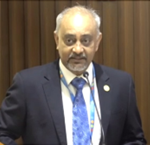 Sridhar Dharmapuri is the Senior Food Safety and Nutrition Officer at the FAO Regional Office for Asia and the Pacific in Bangkok. He leads efforts to strengthen national food control systems, ensuring public health and enhancing trade through safe value chains. Previously, he coordinated FAO’s largest food safety projects in Bangladesh and has supported multiple projects in Asia and Africa. He holds a doctorate in Life Sciences from Jawaharlal Nehru University, India, and an MBA from Kansas University, USA.
Sridhar Dharmapuri is the Senior Food Safety and Nutrition Officer at the FAO Regional Office for Asia and the Pacific in Bangkok. He leads efforts to strengthen national food control systems, ensuring public health and enhancing trade through safe value chains. Previously, he coordinated FAO’s largest food safety projects in Bangladesh and has supported multiple projects in Asia and Africa. He holds a doctorate in Life Sciences from Jawaharlal Nehru University, India, and an MBA from Kansas University, USA.
Participants
Working with a multi-stakeholder approach, SIANI aims to have a broad representation of actors from academia, the public and private sector, civil society, and international organisations. The SIANI network in the area consists of organisations engaged in previous and current SIANI expert groups, Swedish organisations present in the area and their local and regional partners, SEI colleagues and partners, and other SIANI members. SIANI also warmly welcomes actors not previously connected to SIANI.
SIANI does not cover any travel, accommodation, meal, or visa expenses related to attending the SIANI regional meeting.
Registration is now closed
